Incorporating smoothies into your meal plan can be a great way to easily add more nutrition to your diet. It’s an easy tool for weight loss, as it can be a fun and tasty snack or meal replacement. However, when you first start making smoothies, the commonly asked question often comes up: What’s the best milk for smoothies?
That’s exactly what this article will break down. In this comprehensive guide, you’ll learn the best milk to use overall, the best milk for different types of smoothies, and alternatives for when milk is not easy to come by.
Table of Contents
- What is the Best Milk to Use in Smoothies?
- Popular Types of Milk to Use in Smoothies
- Best Milk for Smoothies Based on Type of Smoothie
- Best Milk for Smoothies Based on Diet Preferences
- The Best Milk for Smoothies Based on Cost
- What’s the Healthiest Milk to Use for Smoothies
- The Best Milk for Smoothies for Weight Loss
- The Best Milk for Smoothie Bowls
- Frequently-Asked Questions
- Alternatives for Milk in Smoothies
- Smoothie Recipes to Try
- Bottomline - What is the Best Milk for Smoothies
What is the Best Milk to Use in Smoothies?
The best milk for smoothies entirely depends on the type of smoothie you’re making and your preferences. However, almond milk or soy milk is generally good for all smoothies. Almond milk is low-calorie, creamy, and has a neutral flavor that doesn’t interfere with your smoothie as much as other milk.
Soy milk is great if you want the benefits of almond milk but with added plant-based protein. This is great to add to simple smoothies that don’t have much protein to begin with, like fruit smoothies. I recommend you try my strawberry lime smoothie with soy milk!
Popular Types of Milk to Use in Smoothies
Cow’s Milk – Whole Fat
Cow’s milk is one of the most popular types of milk for smoothies. Smoothie lovers often use this liquid for smoothies, because it adds the most creaminess of any milk. Using whole milk can add extra protein and fat too, making your smoothie more nutritionally well-rounded, keeping you fuller longer and more energized.
One cup has 8 grams of protein and 8 grams of fat.
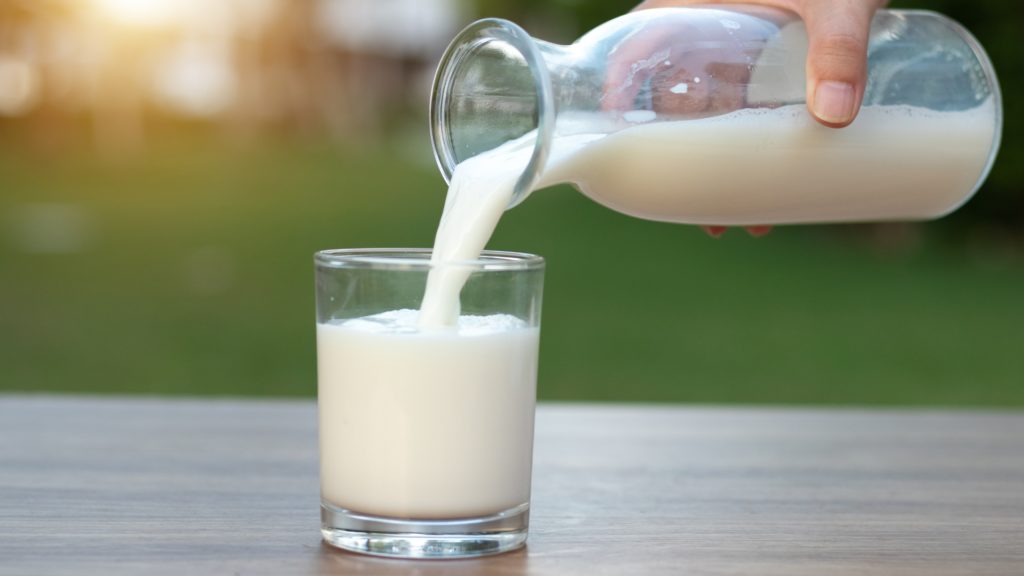
Cow’s Milk – Low Fat or No Fat
Smoothie lovers opt for low-fat or no-fat milk when they still want something of higher protein content but with less fat. This is a great alternative if you are trying to be healthier, lose weight, or reduce your calorie intake.
A one-cup serving of no-fat milk is 0 grams of fat and 8 grams of protein. You can still get all the protein with no fat in low-fat dairy milk!
Plant-Based Milk
Plant-based milk is rising in the ranks of popularity, especially in the last 10 years. Using plant-based milk in your smoothies offers a variety of benefits. This type of milk contains much fewer calories, while still giving creaminess to your smoothies.
Popular plant-based milk to use in smoothies includes almond milk, soy milk, oat milk, hemp milk, and coconut milk. Almond milk is the most popular of all of these types, but knowing what type of plant-based milk offers what benefits, can help you achieve your smoothie goals.
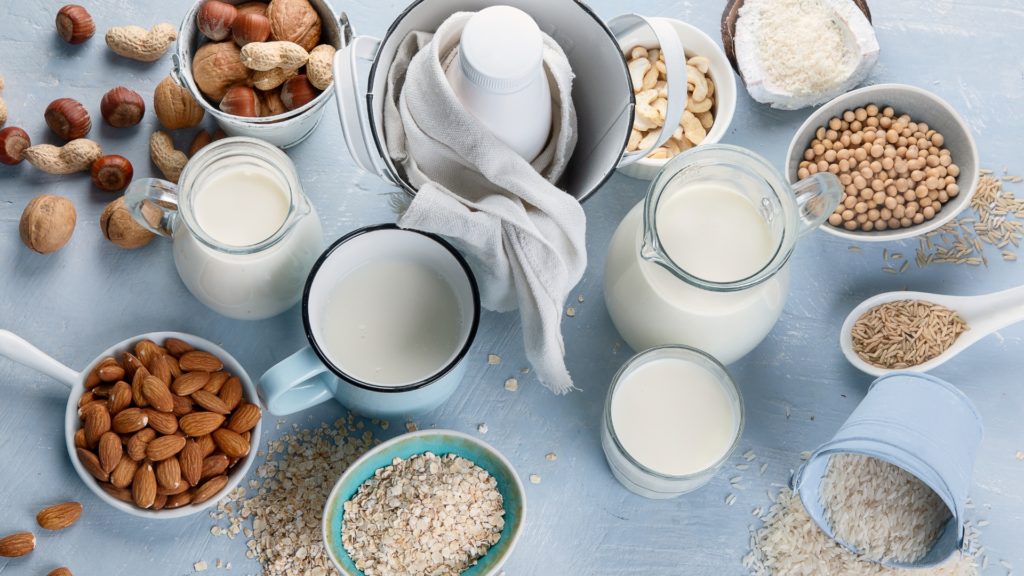
Flavored Milk
Less popular, but still widely used, is flavored milk. Flavored milk is now offered in vegan and non-vegan options. The most popular flavored milk you can use to enhance the flavor of your smoothies is vanilla flavored milk. It adds a nutty, creamy, floral sweetness to your drinks.
Other flavored milk varieties you can use include chocolate milk, strawberry milk, banana milk, blueberry milk, cinnamon milk, and others!
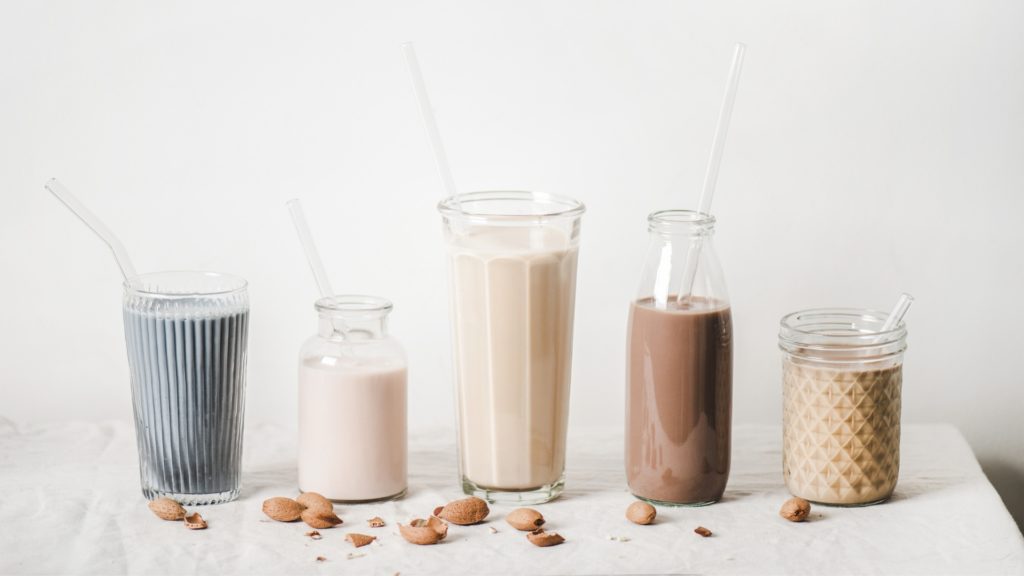
Goat’s Milk
Goat’s milk is not as popular as the other milk described above, but it’s a very unique ingredient you can use to make your smoothie stand out in terms of flavor. Goat’s milk is higher in protein and fat per serving.
If you’re lactose intolerant, goat’s milk can be a great alternative for you! This type of milk can be better digested by individuals with this intolerance, as it has 1% less lactose than cow’s milk.
Best Milk for Smoothies Based on Type of Smoothie
Creamy Smoothies
If you’re making creamy smoothies, opt for whole milk (of the cow or goat variety). The greater fat content will make your smoothie much more creamy.
If you’re plant-based, then I recommend oat milk as the #1 milk to maximize creaminess. Coconut milk is a close second, especially if you opt for the canned version.
Fruit Smoothies
When you make fruit smoothies, do you want it to be a creamy fruit smoothie, or have it taste more like sorbet? If you want your fruit smoothie to be as fruity as possible, and you don’t have juice on hand, I highly recommend using plant-based milk like almond or coconut milk. Using one of those two types of milk is my go-to milk!
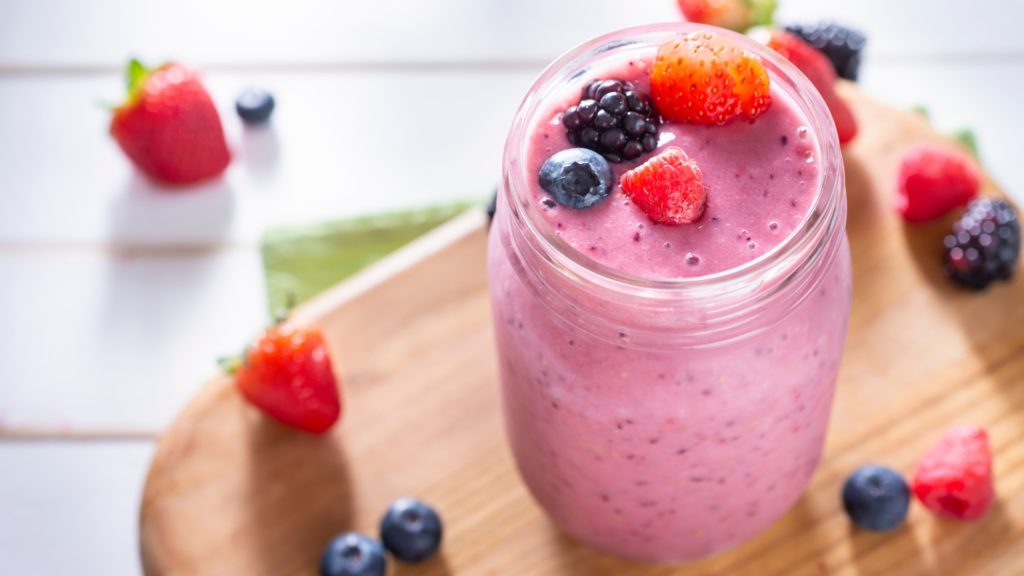
Protein Smoothies
When you make protein smoothies, you may be making them for a meal or post-workout recovery shake. In these instances, you’ll want to maximize the protein content, so you can stay full or properly recover your muscles.
The best milk for this is low-fat or no-fat cow’s or goat’s milk. However, if you’re plant-based, soy milk or pea milk contains the most protein content.
Green or Vegetable-Based Smoothies
Whether you’re a vegan or meat eater, you should use unsweetened, plain almond milk. You can use other liquids, like juice or water, but milk can give you added nutrition. When deciding what kind of milk to use, you may want to pick one that is not too creamy or has a strong flavor profile. That could interfere with the taste of the greens and vegetables.
Plain almond milk has a more neutral flavor in comparison to other milks, and won’t make your green smoothie taste bad.
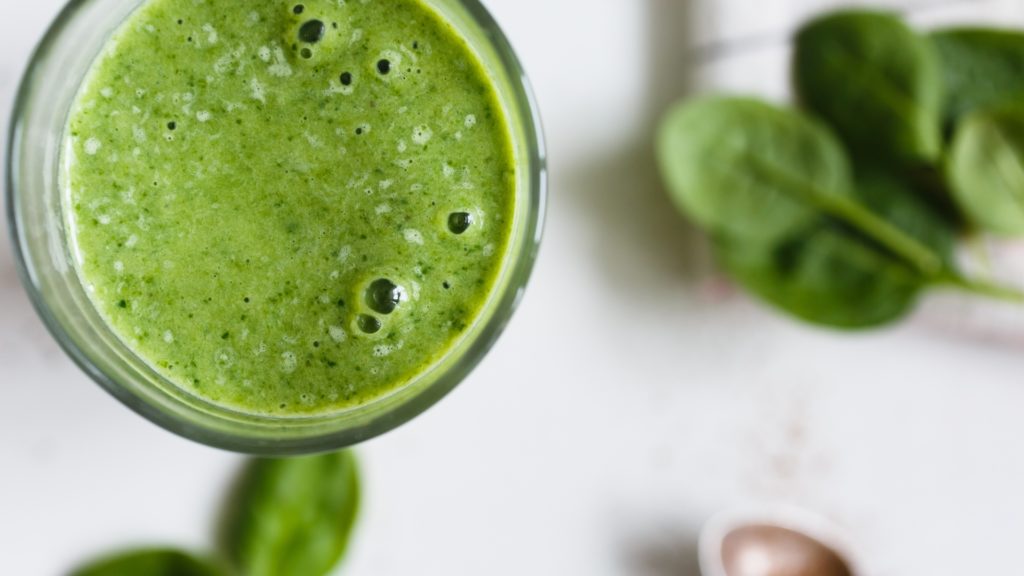
Best Milk for Smoothies Based on Diet Preferences
Best Non-Dairy Milk for Smoothies
The best dairy-free milk for smoothies is almond milk. It compliments a variety of smoothie flavors, is relatively low in calories, and provides a variety of nutrients.
Best Dairy Milk for Smoothies
The best dairy milk is 2% cow’s milk. It’s not going to be as rich as whole milk, but it will still add a nice level of creaminess to any smoothie. Sometimes, whole milk can make a smoothie too rich. Non-fat may not make it rich enough or provide enough flavor. That’s why 2% is a great and happy medium.
Plus, it’s cheap and easy to find in stores!
Best Low-Fat Milk for Smoothies
The best low-fat milk for smoothies is either no-fat cow’s milk or plant-based milk. Almost every variety of plant-based milk will have little to no fat, making it a great default option for smoothies.
High-Protein Milk for Smoothies
The best high-protein milk for dairy lovers is cow’s or goat’s milk. Goat milk has a slightly higher protein content. However, if you want more protein from cow’s milk, just increase the amount you use in your smoothies. If you don’t want the added fat, then use low-fat or no-fat cow’s milk.
The best high-protein milk for plant-based eaters is soy milk. Soy milk has 8 grams of protein per cup serving.
Best Keto Milk for Smoothies
When choosing keto-friendly milk, look out for high-carb or high-sugar milk. The best milk for keto dieters is nut milk. Here is a list of milk to use for keto:
- Almond milk
- Macadamia nut milk
- Pea milk
- Soy milk
- Cashew milk
- Flaxseed milk
Avoid these milk if you’re keto:
- Cow’s milk
- Goat’s milk
- Rice milk
- Oat milk
Low-Calorie Milk for Smoothies
The best low-calorie milk for smoothies is unsweetened almond milk. If you’re watching your calories, avoid cow’s milk, goat’s milk, and oat milk. These kinds of milk are high in sugar. Cow’s and goat’s milk is high in fat content, too.
High-Calorie Milk for Smoothies
Goat’s milk or cow’s whole milk is the best high-calorie milk for smoothies. A one-cup serving of 2% cow’s milk is about 125 calories. Goat’s milk is higher at around 170 calories per cup.
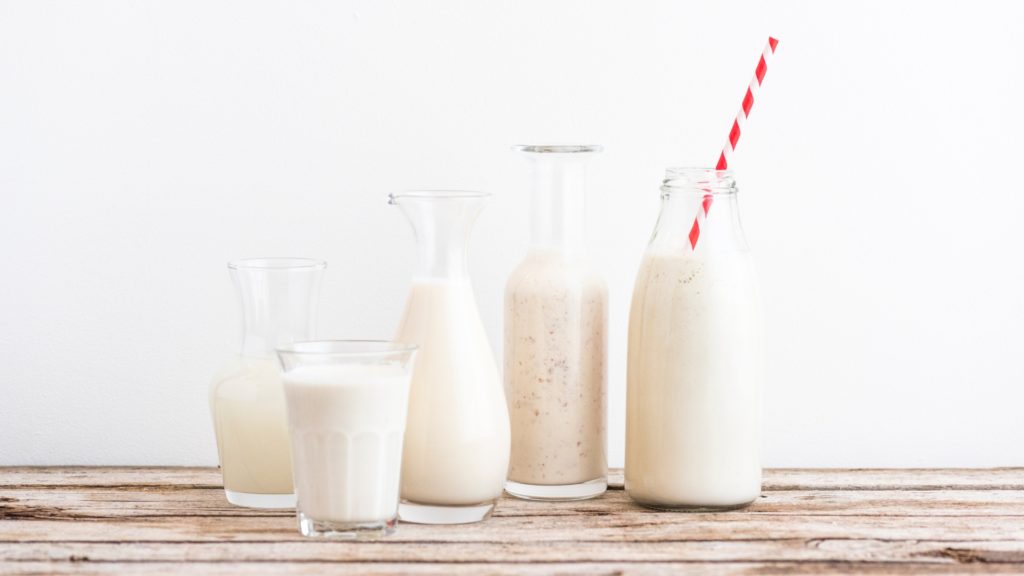
The Best Milk for Smoothies Based on Cost
Almond milk or cow’s milk will be the most cost-friendly milk. The exact price will largely depend on where you live and the amount you’re buying. However, 1 gallon of cow’s milk can cost anywhere from $4-6, and one quart of almond milk can cost anywhere from $2-4.
What’s the Healthiest Milk to Use for Smoothies
That all depends on what your diet preferences, restrictions, and goals are. If you don’t adhere to a strict diet, like the vegan or keto diet, then any milk can be relatively healthy. However, here is a list of the healthiest milk based on diet goals or lifestyle.
Vegan: almond milk and soy milk
Keto: Macadamia nut milk or flax milk
Low-Carb (but not keto): Soy milk or no-fat dairy milk
Calorie Deficit: Unsweetened almond milk
Paleo: Nut milk, like almond milk
No special diet or goal: Every milk except flavored milk
Unhealthiest milk: Flavored milk
The Best Milk for Smoothies for Weight Loss
The best milk for weight loss is almond milk. That’s because it’s one of the lowest-calorie milk you can put in your smoothie. By eating lower-calorie foods, you can encourage your body to be in a calorie deficit, which has been shown to significantly aid in weight loss.
Other milk that is great for weight loss is soy milk and non-fat cow’s milk. These kinds of milk have little to no fat and lots of protein per serving, helping you to stay fuller longer.
Find your favorite weight loss smoothies so you can put them on rotation in your weekly routine.
The Best Milk for Smoothie Bowls
This will largely depend on your preferences. However, overall, almond milk is the most popular. You don’t need a lot of milk for smoothie bowls, since they require a thicker consistency. Almond milk will allow other flavors from the smoothie bowl to come through due to its overall flavor neutrality.
When you make smoothie bowls, start with a little liquid, and gradually add more to adjust it to your consistency preferences. Start with ⅓ cup of milk.
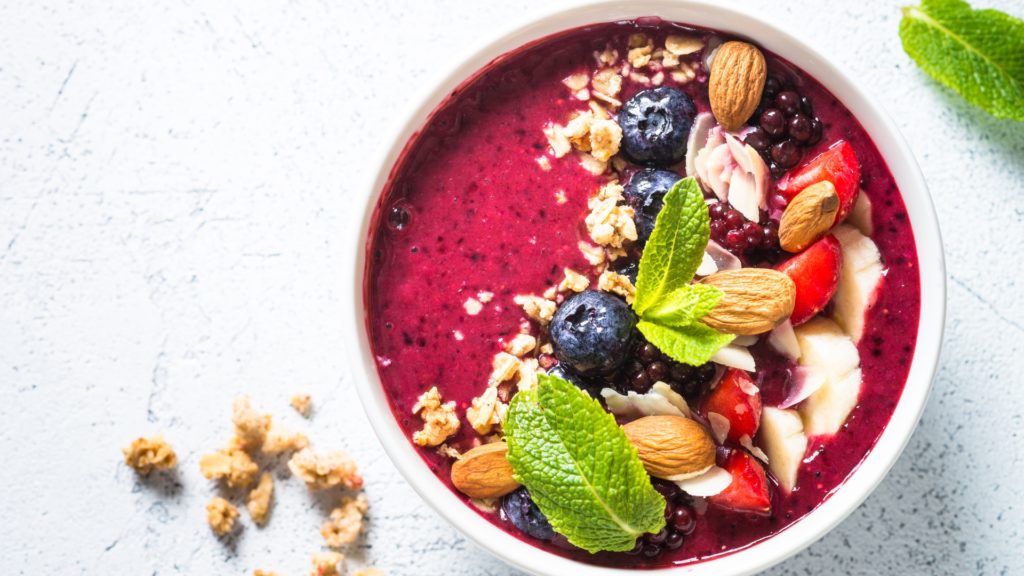
Frequently-Asked Questions
Absolutely! Coconut milk can add an extra creamy texture and nutty taste to your smoothie without the added calories of dairy milk. Plus, it compliments fruit flavors very nicely.
It’s my favorite, and I prefer to use it over almond milk.
Yes! Oat milk is similar to coconut milk in that it can make your smoothie taste more creamy. Oat milk is also one of the naturally sweeter kinds of nut milk than others due to the naturally occurring sugar in oats.
Just be aware that oat milk does have significantly higher sugar content.
Yes. Almond milk is one of the most popular and most used milk for smoothies. It’s low-calorie, relatively creamy for nut milk, and has an overall neutral flavor in comparison to other kinds of milk.
This largely depends on your preference. More people use almond milk, but you can still use oat milk for a variety of smoothies. Oat milk would be good in fruit smoothies, like blueberry or blackberry smoothies.
Not necessarily. Determining what milk to use in your smoothie will largely depend on what your favorite milk is, and what your diet restrictions are. Almond milk is a very popular milk to put in smoothies, but it doesn’t mean it will make your smoothie better.
By understanding the nutritional content of different kinds of milk, and matching that to your diet plan and smoothie recipes, will you determine the best milk to use.
Absolutely! However, it’s not recommended. If you have enough milk on hand, use 100% milk for the liquid in your smoothie. Adding water to your smoothie can water it down and make it less flavorful.
However, it’s a great alternative when you don’t have other liquids for smoothies available.
The best almond milk is unsweetened vanilla almond milk. Almond milk is the most popular type of milk to use in smoothies. When it’s unsweetened, you reduce the added sugar and extra calories. By opting for the vanilla flavor, you can get a fruity and creamy taste.
The best coconut milk is canned coconut milk or refrigerated unsweetened vanilla. If you opt for the unsweetened refrigerated kind, it will give you a creamy and nutty taste without a ton of calories or added sugar.
However, if you want to take your smoothie to the next level of creaminess, canned coconut milk will do wonders. It’s also a perfect ingredient to add if you want your smoothie to taste like a milkshake.
A good substitute for almond milk is any other kind of plant-based milk, such as coconut milk, macadamia milk, oat milk, hemp seed milk, and others. These types of milk will have a similar consistency.
Absolutely! If you want your smoothie to be colder and more frothy, but you don’t want to add ice cubes (for fear you will water down your smoothie), frozen milk is a great hack.
Pour milk into ice cube trays and freeze them until they’re solid before blending them in your smoothie. By freezing your milk in ice cube trays, it will be easier to handle and take faster to blend.
For a one-serving smoothie, use anywhere between ½ cup to 1 cup of milk. The quantity will depend on how thick or runny you want your smoothie to be. Testing out different quantities of milk can help you determine your favorite amount of milk to use.
Alternatives for Milk in Smoothies
If you don’t have milk on hand, don’t fret. There are a ton of milk alternatives you can use instead for delicious smoothies.
Juice
Juice is one of the most popular milk alternatives or liquids to use in smoothies. Perfect for fruit smoothies, it can add sweetness and a refreshing flavor to your smoothies, without watering it down.
For an extra flavorful, frothy smoothie, I recommend freezing your choice of juice in ice cube trays. Pop them in the blender when you’re ready to make a smoothie, and you’ll have a slushy drink packed with flavor.
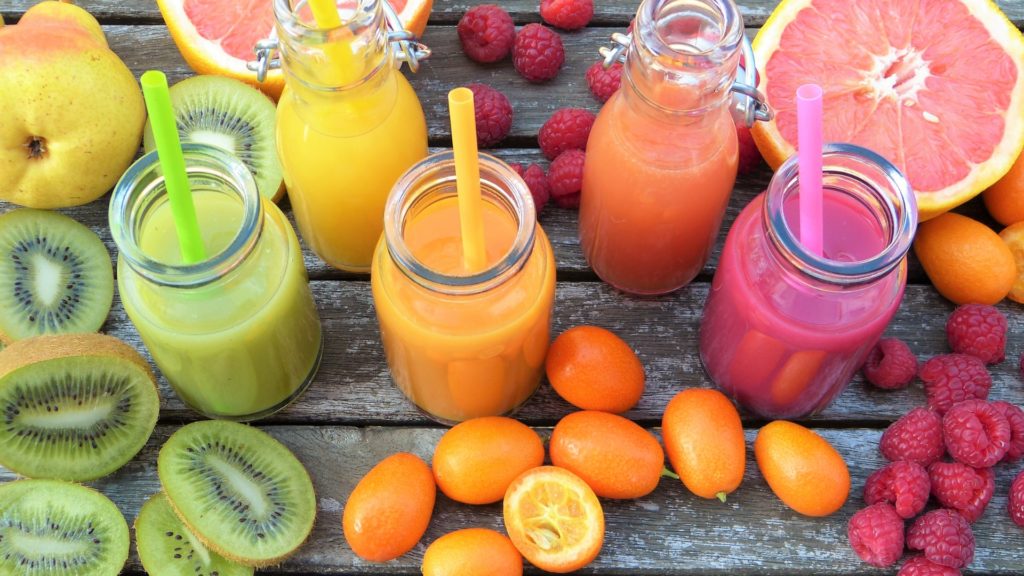
Water
Water is by far the most popular and commonly-used liquid for smoothies. It’s so readily accessible in comparison to the other liquids discussed. Use it in liquid form or freeze it in ice cube trays.
Just note, that using water can “water” down your smoothie, making it less flavorful.
Tea
Cooled tea can be a great way to add unique flavor to your smoothie! Have you ever had a Green Tea Pineapple Smoothie or a Cherry Oolong Smoothie? What about a matcha milk smoothie?
Brew some tea and chill it in the fridge before using it in your smoothies.
Kombucha
Add kombucha for a zing! Kombucha will pair well with a variety of fruits and greens. I would recommend taking your favorite kombucha flavor and adding fresh fruits that match the Kombucha flavor.
For example, if your favorite Kombucha drink is blueberry, then add some blueberry Kombucha with frozen blueberries and blackberries.
Kefir
Kefir is a great alternative to milk, with amazing probiotic health benefits. Kefir is also a great alternative if you like yogurt in your smoothies.
Kefir will add a sour, but creamy taste to your smoothie. Combine it with sweet fruit, like bananas and pineapple.
Smoothie Recipes to Try
- Strawberry Lime Smoothie
- Peanut Paradise Tropical Smoothie
- The Energizer Berry Smoothie
- Healthy Peanut Butter Cup Tropical Smoothie
Bottomline - What is the Best Milk for Smoothies
Smoothies are extremely fun to make. All kinds of milk are suitable for delicious smoothies. Determining the best milk for smoothies will depend on your taste and diet preferences.
Plant-based milk has grown in popularity for use in smoothies, but that doesn’t mean you can’t use creamy cow’s or goat’s milk to enhance the flavor and nutritional profile of your shakes. Just read the nutritional information on the container of your milk of choice and ask yourself if that aligns with your health and diet goals. If it does, then you should use it!
Creating smoothies can be so much fun, and the options are endless. Test out a variety of smoothie flavors with different types of milk to find your favorite, and enjoy creating!
If you found this article valuable, then sign up for our free newsletter to get more smoothie tips and recipes straight to your inbox.

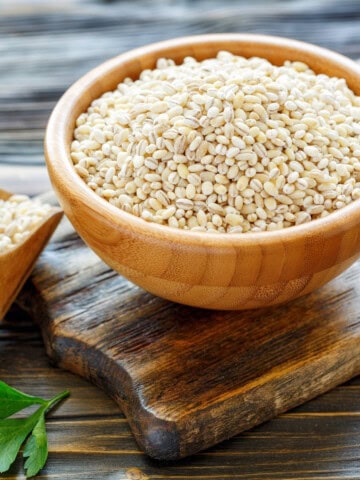

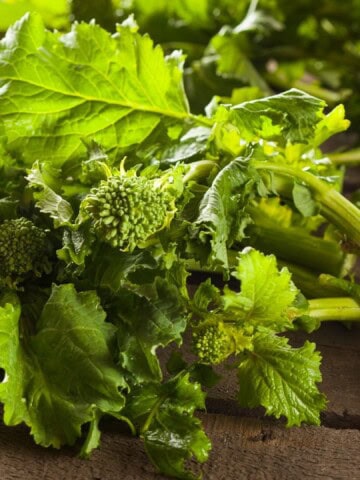
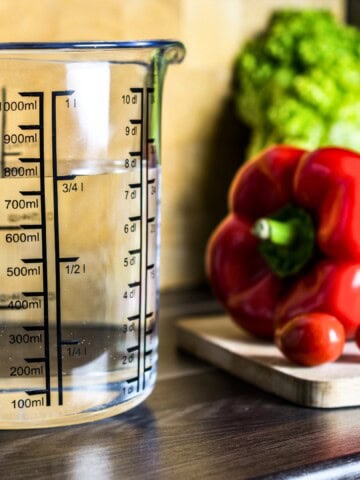
Comments
No Comments